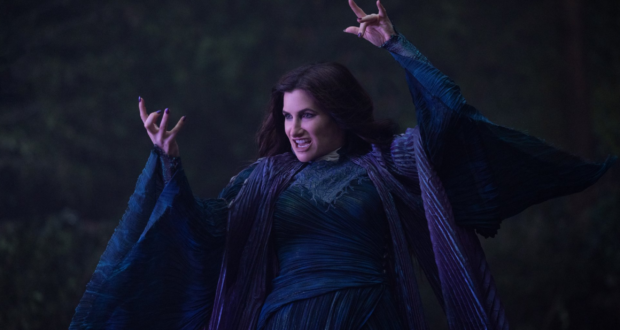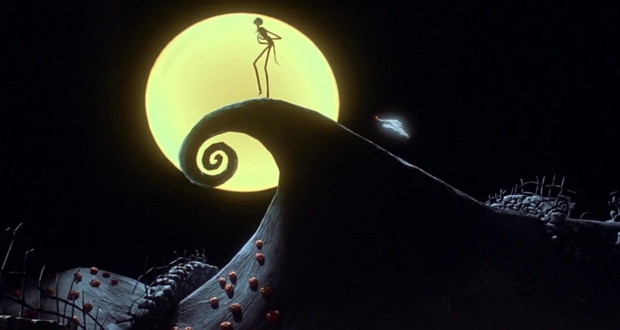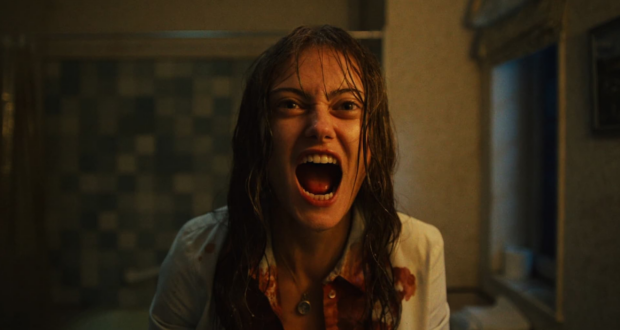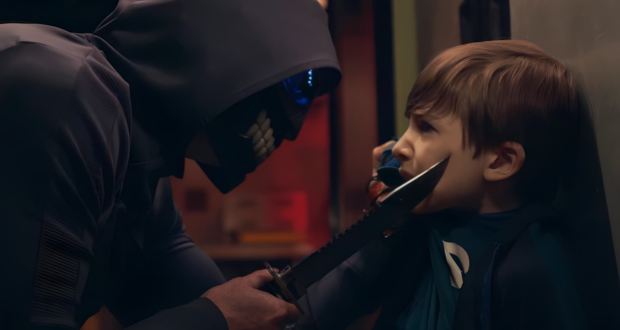Neil LaBute’s Fear the Night delivers a tense and suspenseful narrative centered around a nightmarish bachelorette party. With a promising setup and an intriguing protagonist, the film initially keeps viewers on the edge of their seats. However, as the story unfolds, it becomes clear that the movie suffers from a lack of direction, uneven pacing, and unresolved plotlines. While it manages to maintain suspense and occasional thrills, Fear the Night ultimately falls short of its potential, leaving audiences with a sense of dissatisfaction and frustration.
The Good:

At the heart of the film is Tess, portrayed with intensity by Maggie Q. As an Iraq War veteran and recovering alcoholic, her complex character offers a fascinating exploration of trauma and resilience. Tess’s uneasy relationship with her sister Beth adds an additional layer of tension, and the dynamics among the women at the bachelorette party are promising for a captivating psychological thriller. The initial setup is intriguing as Tess’s unease and suspicions about the caretakers foreshadow the impending danger.
However, the film stumbles as it tries to balance character development and plot progression. The bachelorette party scenes, while aiming to build suspense and foreshadow the danger that lies ahead, feel excessively long and drawn out. The pacing becomes uneven, making it difficult for the audience to fully invest in the characters’ fates.
The Bad:
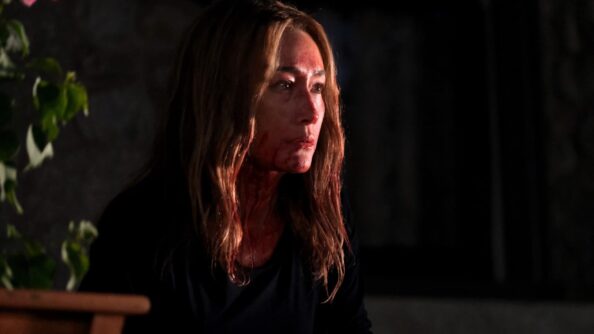
The attack itself, while tense and action-packed, falls into the trap of becoming overly gory and gratuitously violent. The excessive focus on violence diminishes the psychological aspects that could have been explored in the film, particularly regarding Tess’s military background and PTSD.
As the story unfolds, some plot elements are introduced but left unresolved, leading to frustration. The caretakers’ involvement with the drug money and Perry’s gang is an interesting twist, but it feels underdeveloped and hastily explained. These plot threads could have been explored further, adding depth to the narrative and creating a more meaningful connection between the characters and their assailants.
One of the most significant flaws in Fear the Night is the lack of a cohesive message or theme. While the film briefly touches on themes of survival and sisterly bonds, it fails to delve deeper into these ideas, leaving the viewer with a sense of emptiness at the conclusion. The ambiguity surrounding Tess’s altered statement to the authorities is never fully justified or resolved, leading to an unsatisfying ending that feels rushed and unsatisfying.
Despite these shortcomings, the film does have some redeeming qualities. The tension-filled cat-and-mouse game between Tess and the attackers keeps viewers engaged, and the survival instincts displayed by the women add an element of empowerment to the story. The film’s visual style and use of lighting create an eerie atmosphere, effectively enhancing the overall sense of dread.
Overall:
Fear the Night starts with a promising premise and a compelling protagonist but fails to capitalize on its potential. The film struggles with pacing issues, unresolved plotlines, and a lack of thematic depth. While it manages to maintain some suspense and deliver occasional thrills, it ultimately falls short of leaving a lasting impact on its audience. Neil LaBute’s direction attempts to deliver a gripping thriller, but in the end, Fear the Night fails to rise above mediocrity.
-
Acting - 7.5/10
7.5/10
-
Cinematography/Visual Effects - 6.5/10
6.5/10
-
Plot/Screenplay - 4/10
4/10
-
Setting/Theme - 4/10
4/10
-
Watchability - 6/10
6/10
-
Rewatchability - 3/10
3/10


